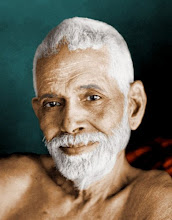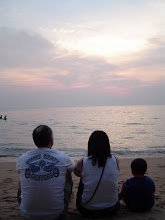Time Enough at Last features the great Burgess Meredith as henpecked bibliophile and bank clerk Henry Bemis who emerges one afternoon from the bank vault in which he takes his daily lunch and reading break to discover that he's the lone survivor of a nuclear holocaust. In his desperate wanderings through the decimated city, he becomes so despondent that he's ready to commit suicide until he discovers the public library nearby with its gazillions of intact books waiting for him.
Between all these books and his access to all the unspoiled food he can eat for the rest of his life, he has almost everything he's ever truly wanted, and his despondency turns to elation as he realizes that he'll no longer be barred by duties at the bank and at home from reading to his joyful heart's content. Yet, when he bends down to read one of the books he's selected, his very thick glasses fall off his nose and shatter on the pavement, he's rendered all but blind, and he's left sobbing, "It's not fair...that's not fair."
This episode resonates with me partly because I consider myself to be a little like Henry Bemis. I've always been more at home in the world of words and ideas than in the one of people and things, and, even though my wife doesn't treat my reading with the contempt that Mr. Bemis meets from his wife and his boss, I never feel as though I have enough time to do all the reading I'd like to do. I think I would be uncommonly happy to be able to spend most of the rest of my life just reading and writing, and if I were to end up in Mr. Bemis's shoes as the only survivor of some kind of catastrophe, I think I'd spend a good deal of my time, if possible, reading books and writing.
Yet, if there were no one around with whom to discuss what I read or to read what I wrote, and if I weren't faced with the normal challenges of life and people to which I could apply the insights I gleaned from my readings and ponderings, what would be the point of them? When one comes right down to it, it seems that the purpose of reading, learning, and pondering is not simply to do and enjoy them in a vacuum but to share them and use them in other ways with other people.
Even if I weren't the lone survivor of a holocaust but simply living, reading, and writing, like Thoreau, in a cabin in the wilderness, I would ultimately be doing all of this to bring something back to civilization when I finally returned to it. If I knew that I'd have to spend the rest of my life in that isolated cabin with no one else around, I might read and write simply for diversion's sake, but much of my enthusiasm for it would probably be gone and, even surrounded by books and food enough to last me for years, I'd probably soon fall into implacable despair. And I'm guessing that even Henry Bemis would too.
For even when we want to escape the world by plunging ourselves into books or television or whatever, we often do it to become wiser and happier in the real world and with real people outside the artificial realms of books, television, and ideas. We escape to reemerge wiser and better than before.



No comments:
Post a Comment